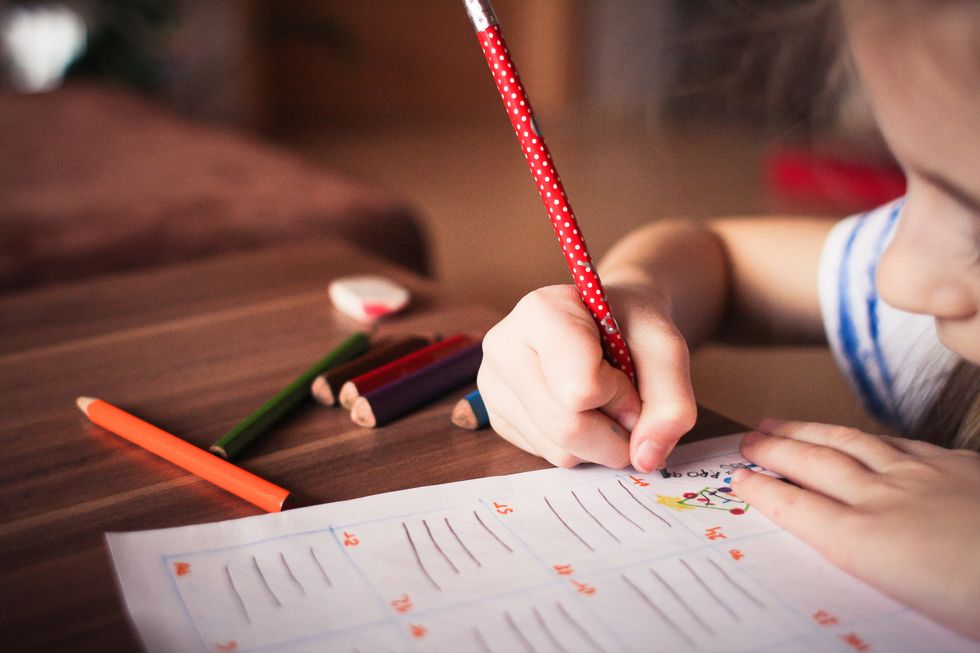I work with children. Sometimes it can be crazy rewarding, but other times, it’s stressful to be in charge of educating the youth about their own behaviors and how problematic they can be later. It’s like a fire that parents don’t see but you have to be careful when you douse it out. I remember by my second year of working with children and there were some that were making racist comments about people of Asian descent. I tried to curb them away from the behavior but when they laughed and I found it frustrating, I made it more severe and told them that the comments they were making were blatantly prejudiced -- later I got reprimanded for talking to them about the severity of their comments.
In my seventh year now, I work for a company that tries to educated children about different cultures. However, the downside is that children find it “boring” and that -- for someone who is forward thinking -- can be frustrating. During a lesson about the importance of Rumba music to Cuban heritage, I had children making racial/prejudice remarks. I stopped my lesson and asked my classroom why it is important to learn about a culture different from our own, and while I was getting answers, the children making the remarks were talking over them. I calmly handed off my lesson to a co-worker and pulled the children outside, letting them know that we had a few of their fellow students in the room who were of Hispanic descent and spoke the language fluently and to insult their language by calling it stupid and boring and irrelevant was not okay, and was outright wrong. I sent the children into a different area and got back to my lesson, but found it equally frustrating when my superiors did not share in the same disappointment or found their actions to have the same level of severity.
Working with children who are not in a school that is diverse or well integrated can pose many comments like these and these children -- despite being given an opportunity to be educated -- don’t often receive it as well as we would hope. Some schools in the south are even making an effort to remove slavery from their textbooks. Each time I hear of these instances, I wonder why our education system is failing POC (people of color) so easily. I think back to my own education and how transparent my teachers were about slavery in my own elementary school courses and wonder how things got so off track.
I feel a duty to protect and educated children about these important topics because this is the time in student’s lives that they are most impressionable. In a sense, children are stunted when we fail to educate them properly, when their schools are not diverse, and when their parents try to shield them from the ugliness that this world has inflicted on POC. It is extraordinarily unsettling to think that it is frowned upon to try and correct the words and behaviors of children who are not exposed to people of other cultures when they make remarks about those cultures that are so wrong.
I always do my best to pose the situation as if it were the opposite for these children. This seems to help most -- it helps them gain compassion and empathy. Children can be educated and corrected when it comes to their ideas and are easily molded into better people with more open minds; but if teachers/educators/individuals who work with children are not brave enough to educate them, to take that first step, then we will have failed the world and the people who need the most representation. Over time, if we have the difficult and awkward conversations, we can make a difference and to excuse children from these remarks makes them think that this line of thinking is correct or okay, when it is not. We have to do our best to make our future better, to educate and help children understand that human lives are important and to understand that people who are different from them exist and are just as human as they are.
So here is some advice to approach the topics that seem too raw, awkward, or difficult to talk about. Don’t be afraid to point it out, make these moments teachable ones, lead by example. If a child is making remarks, sit them down, ask them why they think like that, reverse the roles to put it on them, educate them about topics, point things out, explain your point. Find ways to help them identify with others, practice what you preach. You don’t have to approach these topics with anger or panic, remain calm, make sure they know that any behavior that singles out others will not be tolerated and stick to the consequences. Be firm and take your time to be sure they understand. By taking the time and effort you will have done what is right and you will have done your job.
There are times where I cannot help but feel helpless in these situations, because I am part of a system that doesn’t comprehend the importance of our role in the future. Children are like clay -- if we take the time while they are young and their minds are easily molded, we can help them become better than the previous generations before they are hardened and “set in their ways.” Humans are adaptable and teachable beings with the ability to comprehend a full range of topics. I urge those of us who work with children to be brave, to not fail them, to teach them the importance and the impact of their words and actions, to have consequences that help them learn from those words and actions. Educate, it is your duty.



















